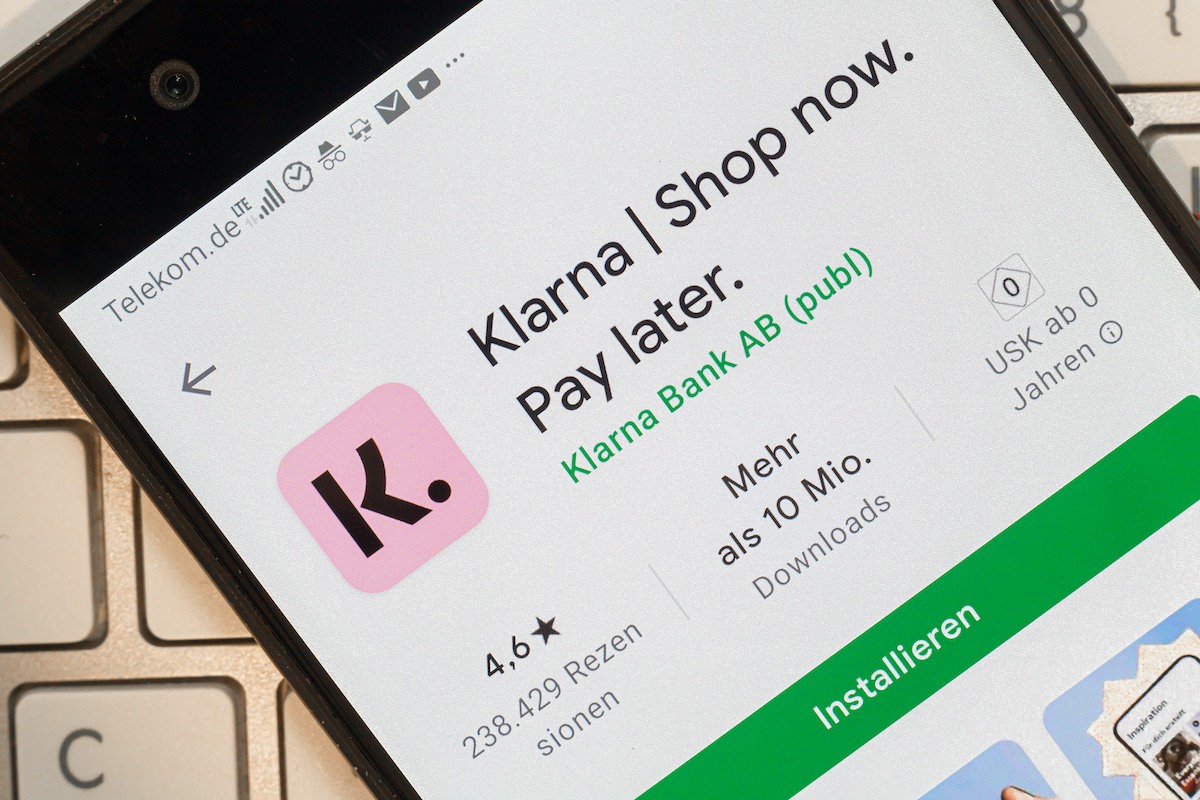Major Retailers Are Starting to Get Rid of This Popular Perk
Before you make your next major purchase, check to see if the store still offers this option.

It used to be that savvy shoppers would begin the hunt for Christmas gifts in May, taking advantage of store-based layaway programs to spread out payments and get shopping done early. But it appears that layaway may be going the way of the dinosaurs.
Some stores that once offered layaway options to customers have now dropped those programs in favor of "buy now, pay later" programs like Klarna, Afterpay, and Affirm, according to CNBC. Just recently, Walmart announced that for the first time in the company's history, it won't be offering layaway this year, and is instead suggesting customers make purchases with Affirm.
Read on to learn more about who's phasing out layaway and what these new apps hold for the future.
RELATED: Costco Is Limiting How Much You Can Buy of These 4 Things.
Layaway has been around for nearly 100 years.

Layaway has been an option for cash-strapped shoppers for nearly a century. According to a PBS interview with retail historian and Harvard Business School professor Nancy Koehn, layaway first became popular in the 1920s. Many retailers created "installment plan" programs so aspirational consumers could take part in the new economy and make purchases like cars and radios, Koehn said.
For shoppers, the appeal in layaway lies in placing claim on a product while paying the cost of the item over time. But the downside is that customers have to wait until they've paid in full for a product before they can take it home.
Still, layaway programs benefit people with bad or no credit in that they offer an option to pay for an item over time without having to incur interest charges. Additionally, failure to pay off a layaway purchase won't impact your credit score.
And for more shopping tips and news, sign up for our daily newsletter.
Layaway is being replaced by "buy now, pay later" programs.

While layaway plans may be disappearing, a similar option is becoming more popular: "buy now, pay later," which allows consumers to purchase an item right away and then pay for it over multiple installments. The idea of putting off payment while being able to get your hands on a product right away is becoming wildly popular with shoppers, particularly younger customers. Many of these programs target Gen Z consumers who have not yet built up credit or tend to approach credit cards with high levels of wariness and suspicion.
Additionally, as Klarna explains on its website, "unlike a credit card limit that increases as you spend—and can encourage more spending—we cap the amount you can spend using the app (aka the amount you have to pay off) based on your financial situation at the time of purchase."
For some established companies looking to draw in younger customers, using "buy now, pay later" programs has provided an extra boost. "We launched Klarna on the Macy's website in October [2020] and we've since scaled it across Macy's, Bloomingdale's, and Bluemercury, both online and in stores," Macy's CEO Jeff Gennette told CNBC. "With Klarna, we continue to see higher spend per visit and increased acquisition of new younger customers, 45 percent are under 40. Our goal is to convert all of these new customers to Macy's loyal customers, who return for future purchases."
Overall, the research firm RBC Capital Markets estimates that "buy now, pay later" programs have increased consumers' in-store spending by as much as 50 percent, CNBC reports.
RELATED: The One Thing Every Major Department Store Has Now Permanently Banned.
But with the "buy now, pay later" options, there are a few catches.

In many cases, these "buy now, pay later" programs offer zero interest rates, but there are higher transaction fees for retailers, and late fees for customers, which can really add up. A program called Afterpay was criticized after it was discovered that around a quarter of its profits came from late fees in 2018, according to The New York Times.
Additionally, if customers fail to make payments on time, their case may be forwarded to a credit bureau or be sent to a collection agency for remittance, similar to what would happen with a regular credit card.
Some of these programs also charge interest based on the size and type of purchase and the repayment schedule.
These "buy now, pay later" programs don't necessarily apply to all purchases, as Walmart's recent change highlights.

Walmart shoppers were surprised to learn that no stores in the U.S. will be offering lawaway service this year, which was recently confirmed to NBC affiliate WRAL. The retailer's website also no longer advertises the normal layaway option. Instead, they're offering "buy now, pay later" through Affirm. According to Walmart, if your purchase is between $144 to $799.99, you may be able to finance the purchase over three, six, or 12 months via Affirm. But if you've spent $800 to $2,000 (the max to qualify for Affirm), the financing option is available over 12, 18, or 24 months.
There is also a finance charge with Affirm, which may be an annual percentage rate (APR) of anywhere between 10 to 30 percent, based on credit.
The option is available for items sold in the electronics, home, auto, sports, toys, baby, apparel, and jewelry sections, while other goods—including pharmacy, groceries, alcohol, tobacco, baby consumables, pet supplies, wireless services plans, gasoline, and weapons—are not eligible. But that could also change. "These Walmart.com categories are non-comprehensive and subject to change without notice," the retailer notes on its website "To purchase any finance-ineligible items, you'll need to provide an alternative form of payment."
RELATED: Never Buy This One Food at Walmart, Customers Say in New Survey.





















